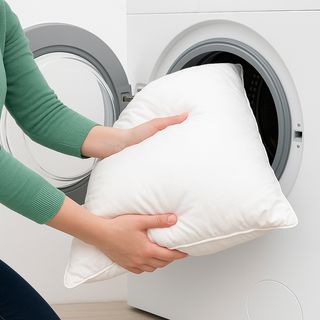
How to Wash and Care for Your Bedding – 13+1 Expert Tips for Long-Lasting Pillows and Duvets
Properly washing and caring for your bedding—including pillows, duvets, and comforters—is essential not only for hygiene, but also for extending the life of your favorite sleep accessories. This expert guide offers 13+1 essential tips to keep your bedding fresh, clean, and long-lasting. Whether it’s down, synthetic, or wool, these proven methods help maintain quality and ensure optimal results.
13+1 Expert Tips for Washing and Caring for Your Bedding
Proper care of your bedding ensures long-lasting comfort, cleanliness, and durability. Follow these 13+1 expert recommendations to keep your pillows, duvets, and bed linens in top condition.
- Always read the sewn-in care label.
Do not remove it — it's essential for proper washing and professional cleaning. Warranty claims are void without it. - Only wash bedding products if permitted by the label.
Not all products are washable. Always follow the manufacturer’s instructions. - Use mild, pH-neutral detergent (wool detergent).
Harsh chemicals can damage fibers. Never use fabric softeners or rinse aids. - Wash in machines with adequate capacity.
Wet bedding retains multiple times its dry weight — avoid overloading. - Dry bedding completely within 2–3 hours after washing.
Incomplete drying can lead to mildew. Fast, thorough drying is critical. - Avoid low heat and gentle drying programs.
Prioritize quick drying to preserve the bedding's shape and cleanliness. - Never iron bedding products.
Creases may occur from improper washing or drying, but ironing is not recommended. - High washing temperatures are not necessary.
Effective disinfection is achieved during drying at 60°C for at least 20 minutes. - Maintain a healthy bedroom climate.
Ideal humidity is 40–50%. High humidity promotes dust mites, fungi, and bacteria. - Ventilate duvets and pillows regularly.
Daily airing helps release moisture and reduces washing frequency. - Natural fillings are naturally dirt-repellent.
Both natural and specially treated synthetic fibers resist soiling. - Do not wash wool-filled products at home.
Dry clean only unless labeled as washable wool — and only with wool detergent. - Change and wash bed linens at least every 14 days.
Regular linen changes protect the inner bedding and ensure hygiene.
+1: Use professional or industrial cleaning when needed.
If unsure, or your machine isn't suitable, rely on professional laundry services.
By following these care instructions, you’ll preserve the comfort, hygiene, and longevity of your bedding — ensuring restful, healthy sleep night after night.





